Do you know what a ferret first aid kit is?
What should you put in it and why?
Owning a ferret first aid kit can be very useful because you never know when you will need it. It is a necessity just like a first aid kit for you, your family, and other pets in your home if you have them. So, what should contain a ferret medical kit? It is only for emergencies or regular items? Continue reading and find out!
TABLE OF CONTENTS
What Is A Ferret First Aid Kit?
A ferret medical kit is a box you can fill with different medicine and equipment that can help you take care of a sick or wounded ferret. It is very similar to the first aid kit you have in your home or in your car. Having a first aid kit for ferrets in your home helps by providing you with a chance for a quick reaction if your ferret suddenly becomes ill. That means you don’t have to spend time rushing to the pharmacy for some gauze or even a simple thermometer to measure your ferret’s body temperature.
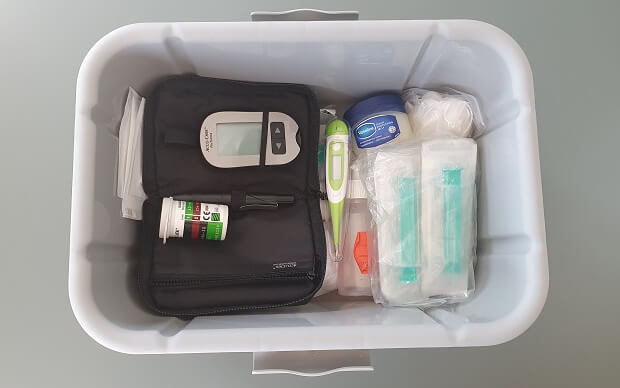
Everything can be within your reach and you don’t have to spend precious time going back and forth, you can simply focus on your ill fuzzy. Keep in mind that first aid kits have items with expiration dates. Due to that, keep the box updated. The best way to do that is to check the date and choose the closest one to the present. Memorize or write that date and make sure to replace the item that expires on that date with a new one.
What To Put In A Ferret First Aid Kit?
This medical box should be filled with important supplies that are made to keep your ferret stable during an intervention. You have to be able to cover (even for a short time) any bad situation regarding your pet’s health. I know that this all sounds so theoretical, so I will give you a list of things you should put in that box. Let’s take a look!
Important Documentation
Your Ferret’s Info
It is always smart to gather all important information about your pet in one place. That way, if something happens, you can easily grab all the necessary info and rush to the vet. So, what is that info? Ferret’s name, date of birth, gender, type of animal, vaccination history, microchip information, and a list of major health issues (if there are any). If your ferret has allergies or needs to take some pills, put that on the paper too. You can also keep all medical history in the file next to the box if you change the veterinarian or some other situation. There is no such thing as too much information when it comes to your pet’s health.
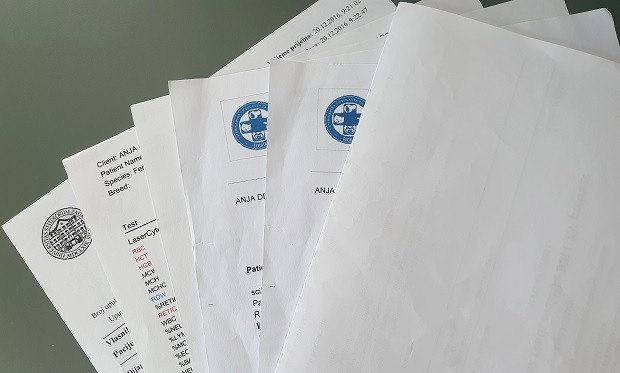
Emergency Contact Information
When your ferret is ill, you don’t want to spend time Googling emergency numbers. So, to avoid that situation, write all contacts on a piece of paper and put it in the box. The list should consist of your vet’s number, emergency phone number, RTG phone number, Poison Control phone number and I would add your number and a contact number of an experienced ferret owner. The last contact number is a good idea when someone is watching your ferret. Don’t forget to write the addresses right next to those contact numbers.

Emergency Cash
Unfortunately, medical bills for ferrets can get pretty high. So, if you are able, I strongly recommend putting away a little amount of money every month or two for emergencies. That way, if something happens and you are forced to go to the vet with your pet, you won’t have to set the entire amount aside instantly. Having a small emergency budget will keep your heart at ease and you won’t have to worry about medical bills.
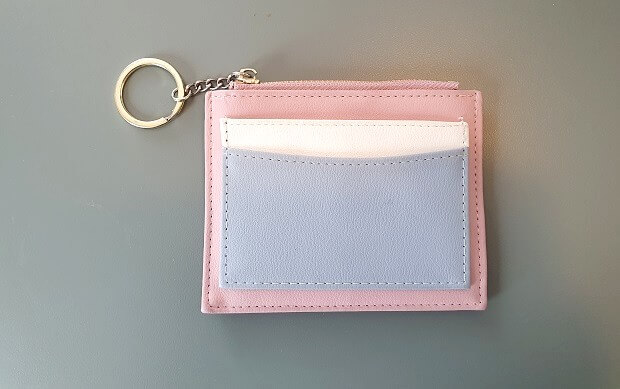
Emergency Equipment For You
This equipment consists of tools that help you handle the sick ferret, measure the temperature, or take care of the wound. You can make a separate bag in the kit with this equipment so you can easily find the thing you need.
Portable Light
A small portable light sounds weird, but it can come in handy. For example, if your ferret is choking on something and you can’t look inside his mouth, you can use the light. It can also help you with small wounds like thorns or even if your ferret gets stuck under some furniture. Don’t underestimate the power of a flashlight and don’t forget to pack batteries with it!
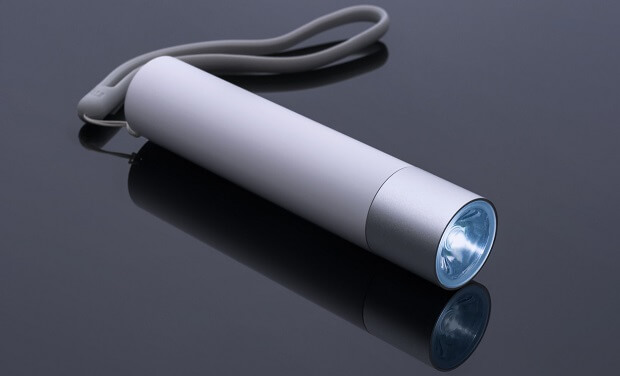
Latex/Rubber Gloves
Gloves are pretty self-explanatory. When you are handling a wound or some medicine, you have to have gloves. So, make sure you have a pack of those gloves in the kit because you can never know when will you need them. Also, make sure to check the number of gloves in the kit so you don’t end up without them.
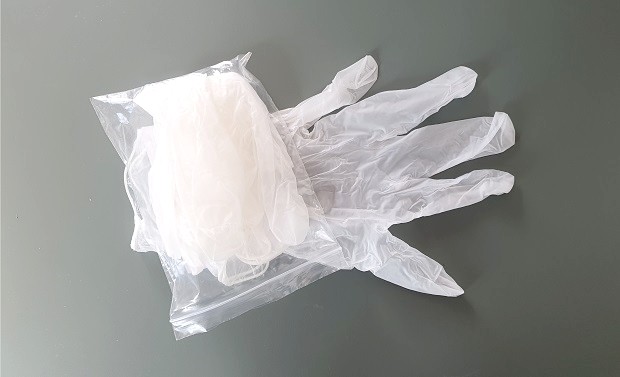
Thermometer
If you think your ferret is sick, you have to measure his temperature. To do that, you have to have a rectal thermometer because that is the way to measure a ferret’s temperature. You should put some vaseline on the thermometer before inserting it for an easier process. Also, keep in mind that a normal ferret temperature is higher than ours. It is around 38°C to 39°C (101°F and 103°F).
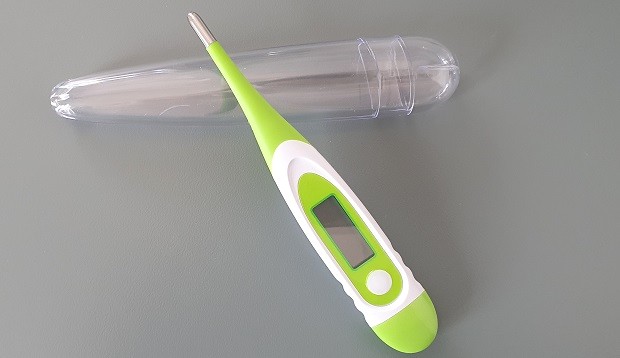
Wooden Sticks Or Tongue Depressors
Wooden sticks have many purposes. You can use it to open your ferret’s mouth, to fix a broken paw or leg. You can even use it to check the poop to see if a foreign body exited your ferret. This last situation is another one where you would use gloves also.
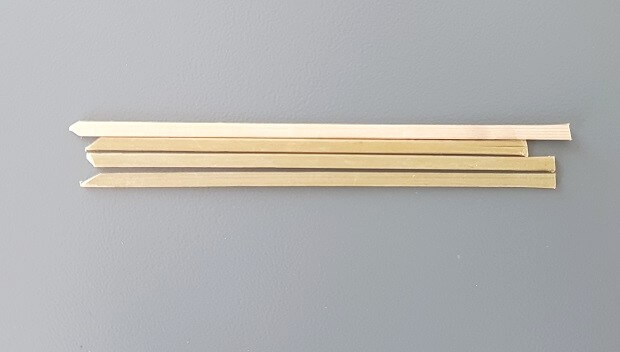
Tweezers And Scissors
Tweezers are a great tool if you have to remove the splinter from your ferret’s paw or any other item that somehow got latched on your ferret body. Scissors are there for cutting so I don’t really think I have to explain their purpose.
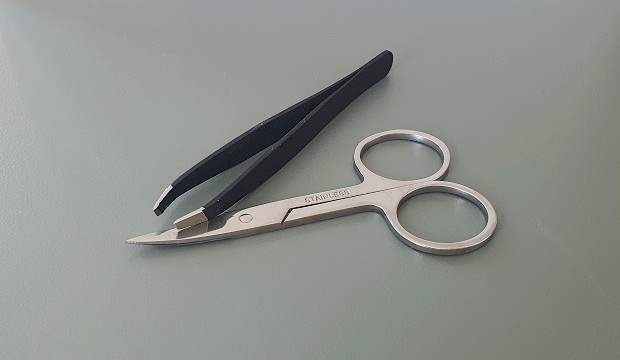
Syringe
The syringe will become your best friend when handling a sick ferret. It is a great way to give your ferret water if he is too weak to drink on his own. Also, it is a great way to give your ferret medicine, no matter whether he likes it or not. You can also use it for dispersing salmon oil.
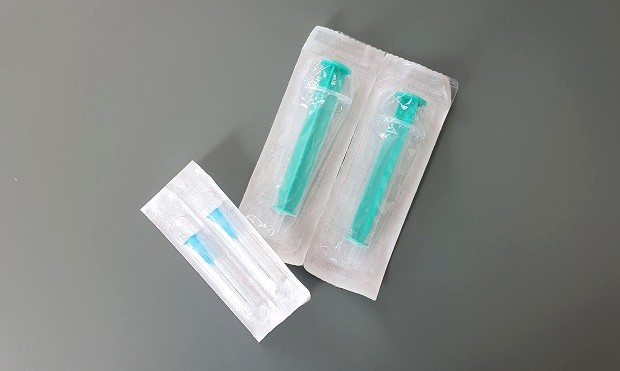
Cotton Pads or Balls
Cotton balls are a great way to stop the bleeding. You can simply use them and press them on the wound. You can also use them for cleaning wounds, cleaning your ferret’s body, for everything.
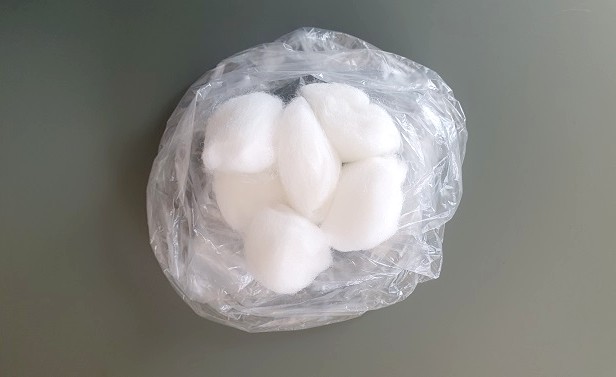
Gauze Pads or Wraps
There are situations when you can’t stop the bleeding with a cotton pad so you have to use something bigger. Gauze pads are good in those situations because they are bigger, they can handle more blood and they are used for that. Don’t forget to put some adhesive tape in the box next to them.
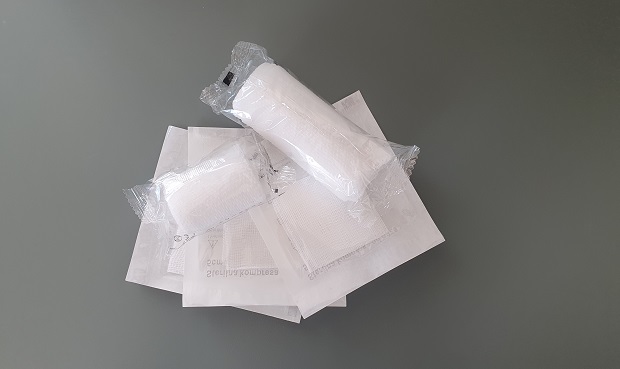
Hydrogen Peroxide Or Rubbing Alcohol
Hydrogen peroxide or rubbing alcohol is used for cleaning wounds or disinfecting scissors, tweezers, and other tools. Put a small amount on a cotton swab and wipe it over the wound to clean it and prevent infection. Rubbing alcohol is something you have to have at home no matter whether you have a pet or not.
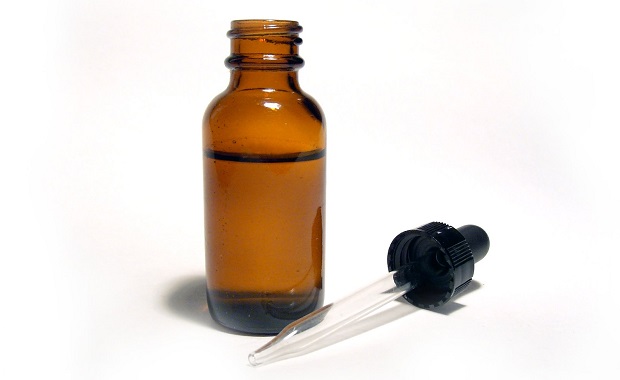
Blood Glucose Monitor
Checking the glucose level is important, especially if you have an older ferret. You can measure the glucose level for prevention or it can help you diagnose insulinoma, which is a serious ferret health issue.
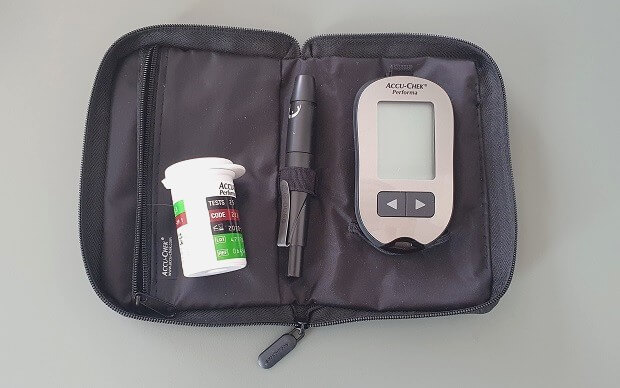
Emergency Equipment For Ferret
This list is focused on the equipment your ferret needs. It is not a tool to help you handle a ferret, it is a list of items that can help your ferret directly, but they aren’t medicine.
Cooling Pads
Ferrets can’t handle the heat so keeping a cooling pad in the kit is a smart idea. If you notice that your ferret is suffering from a heat stroke, a heating pad can help you cool him down. You can use instant cold packs for that, but you can use simple ice packs if you are at home. Just move them to the fridge and make sure there is always at least one in the freezer.
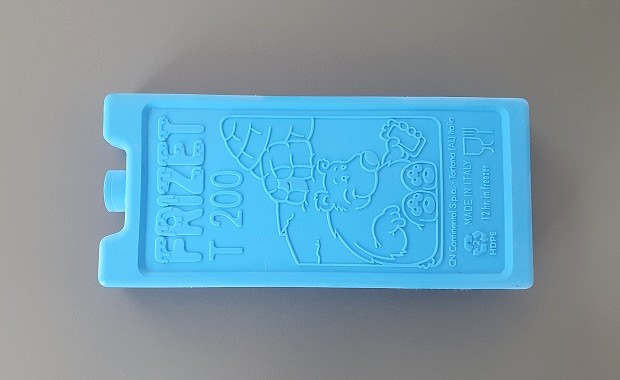
Heating Pads
Ferrets don’t do well during high temperatures, but, when they are sick, it is good to use a heating pad. So, if your ferret is sick, you can use a heating pad to keep him warm, but make sure to separate the heating pad from your ferret. You can do that by wrapping the pad in the blanket or towel then place it on the pad. The type of heating pad is irrelevant, you can use electric or instant ones, just make sure it is not too big or too strong for your ferret.
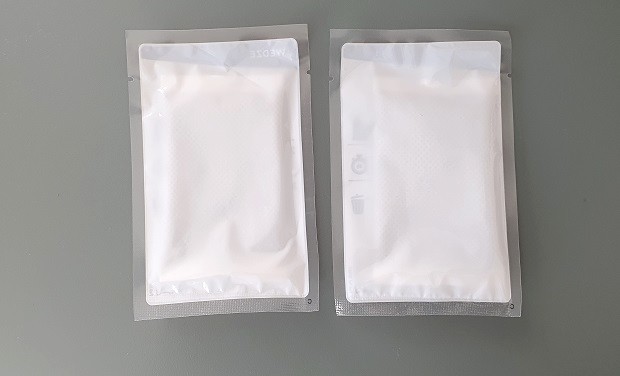
Petroleum Jelly Or Vaseline
Vaseline is good for ferrets for more than one thing. For example, it helps them with enduring temperature measuring. It is also edible so you can use a small amount of it to help your ferret with blockage. Its structure lubricates the ferret’s intestines which can help him with the foreign body stuck in them. But, keep in mind that you have to use only a small amount and not regularly. It is for emergencies only.
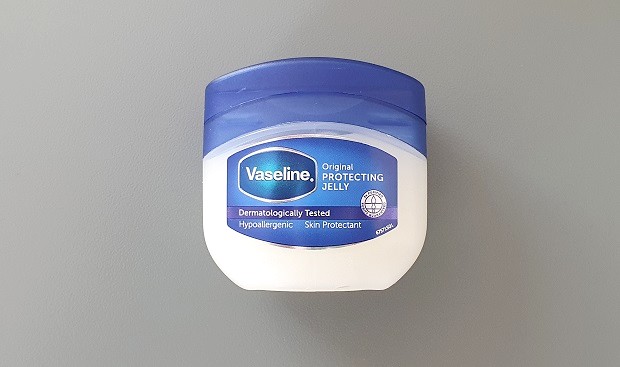
Pumpkin Puree
Pumpkin puree is another remedy you can use to help your ferret with blockage. It is slightly better than vaseline because it is natural so make sure you pick the puree without any additives. Also, you don’t have to buy cans if there are smaller packages because cans are way too big for a ferret to eat whole.

Medical Supplies
This is a very important category and it is different for every ferret. Make sure to fill this part of the ferret first aid kit with the medicine your veterinarian prescribed for your ferret. Don’t use medicine on your own because not every human medicine is safe for ferrets. I will write situations for which you can use some medicine, but the type, brand, and dosage are something you have to ask your veterinarian.

Medicine For Respiratory Infection
Medicine For Stopping Diarrhea
Medicine For Restoring Electrolytes In Dehydration
Pain Killers
Where To Keep Ferret First Aid Kit?
The next thing you have to consider is a place for the kit. As you can see, it won’t be a small box. If you have a ferret room, then I would suggest placing it there in some cabinet your ferrets can’t get into. If you don’t then simply place it somewhere where you can easily reach it. I keep mine in the kitchen cabinets above the sink.
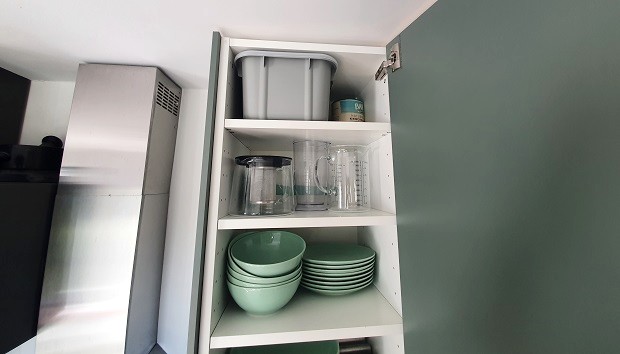
If you are going on a trip with your ferrets, take the first aid kit with you. Also, if someone is watching your ferrets when you are traveling, make sure to show them where the box is and what it contains so you can be sure everything is under control.
Conclusion
Ferret first aid kits are some form of safety for your mind. They are there to keep you covered if some bad thing happens. I really hope you won’t use them, but it is better to have one than to need one when the time comes. Do you have a ferret medical kit? Where do you keep it? Share your experience with us and subscribe to our newsletter!












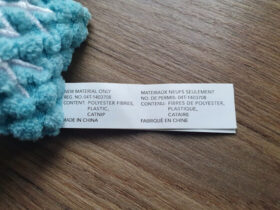





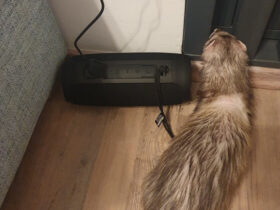
Leave a Reply